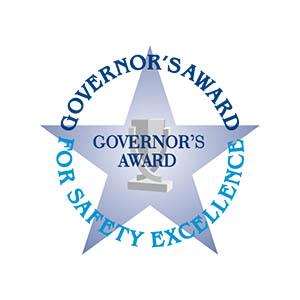Strategies for Reducing Workplace Stress and Protecting Employee Mental Health
By RETTEW Staff, based on research provided by GrammarlyGO
Workplace stress and mental health are two crucial factors that can affect not only the productivity and efficiency of employees but also the safety of the workplace. Stress is a common issue that many people face in their daily lives, and it can be caused by various factors such as workload, deadlines, communication, and support from colleagues or supervisors. Prolonged exposure to stress can lead to negative impacts on mental health and can even result in serious health problems. Mental health is just as important as physical health, so it is essential to take care of both to ensure employee safety.

Workplace stress and mental health can significantly impact safety in the workplace. When employees are under stress, they may become distracted or less focused, which can lead to mistakes and accidents. Stress can also cause fatigue, affecting alertness and reaction times, leading to accidents or injuries. Additionally, the negative effect of stress on mental health can also lead to a decrease in job satisfaction, resulting in high turnover rates and a loss of expertise and experience, ultimately affecting workplace safety.
Employers play a crucial role in reducing workplace stress and promoting mental health to ensure the safety of their employees. One way they can do this is by providing resources and support for managing stress, such as employee assistance programs (EAPs). EAPs typically provide confidential counseling and support to employees who are experiencing stress or mental health issues. Organizations should also create a positive work environment that values and promotes mental health by providing a supportive and inclusive workplace culture, offering flexible working arrangements, and encouraging open communication.

Likewise, employers can demonstrate their commitment to the well-being of their employees and create a culture of care and support by offering mental health benefits as part of their employee benefits package. These benefits could include extending coverage to mental health professionals, such as therapists or counselors, or providing employees with resources for managing stress and improving their mental health.
Employee engagement is another critical factor that can affect workplace stress and mental health and, in turn, affect safety in the workplace. It’s important for leadership to engage employees by involving them in decision-making, providing opportunities for learning and development, and recognizing their contributions. Engaged employees are more likely to have higher job satisfaction, which can lead to lower stress levels and better mental health, ultimately contributing to the safety of the workplace.
Our latest Toolbox Talk on stress management is a helpful resource you can use with your team to discuss stress and how to manage it. By taking steps to address workplace stress and mental health, employers can create a healthier and safer workplace that values and promotes the well-being of all employees.
Meet Lynn Reed
Health, Safety & Environment Project Technician
 As the “face” of RETTEW’s HSE team, Lynn registers participants for training classes, answers client questions, and assists with fit testing as part of her various responsibilities. To learn how she enjoys her time outside of the office, read our latest employee spotlight and learn more about Lynn!
As the “face” of RETTEW’s HSE team, Lynn registers participants for training classes, answers client questions, and assists with fit testing as part of her various responsibilities. To learn how she enjoys her time outside of the office, read our latest employee spotlight and learn more about Lynn!
Does your company need specialized safety training? RETTEW offers a variety of courses and services, like construction safety oversight and high-risk work program consultation, to ensure you and your staff are prepared. Contact us to learn more about RETTEW’s comprehensive and compliant safety training programs and consultations.
Additional Offerings
Safety training and consulting are only some of RETTEW’s 600-plus services. Our safety team works hand in hand with engineers, scientists, project managers, and other technical experts at places such as manufacturing facilities, drill pads, and commercial construction sites. We are well respected for our work in a diverse number of industries and are known for ensuring workers and equipment remain safe, which keeps your projects on track and your bottom line growing.
